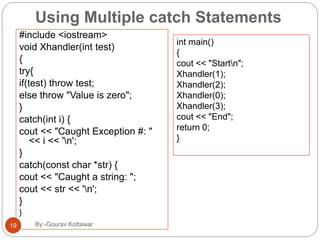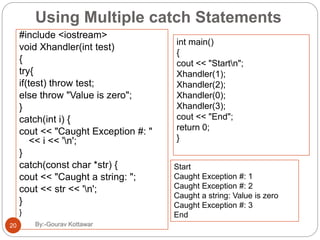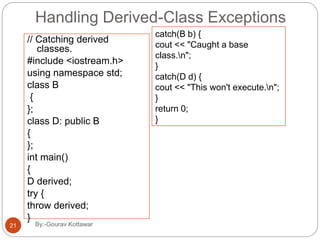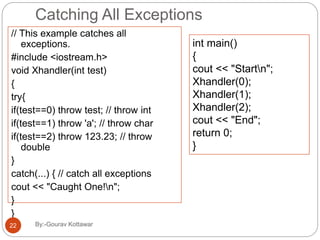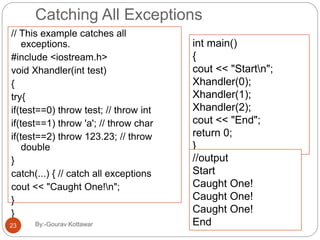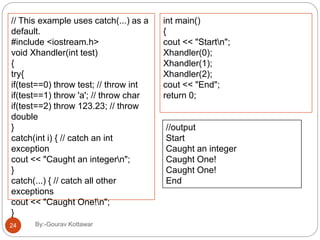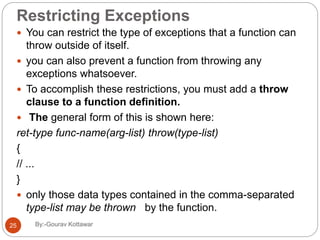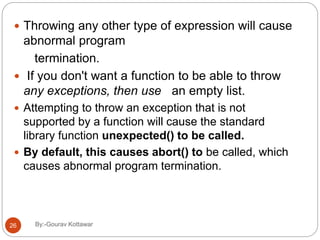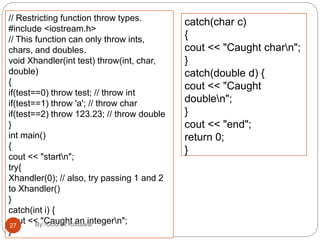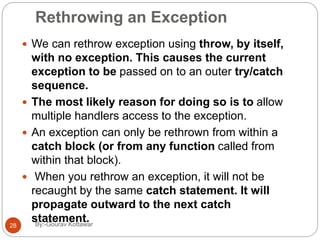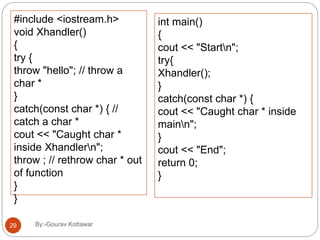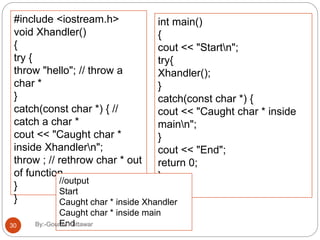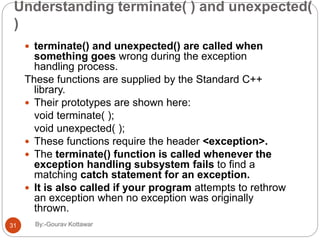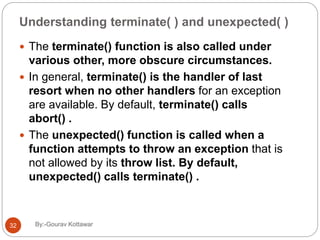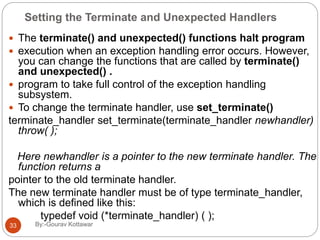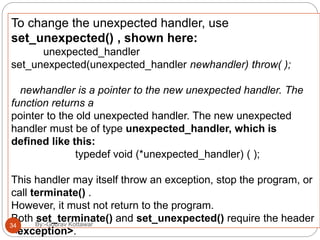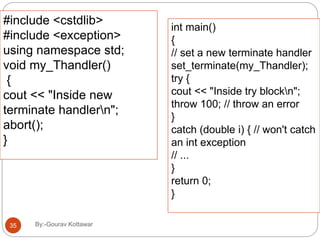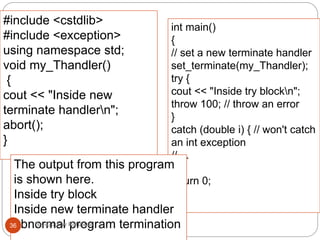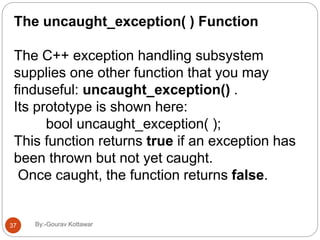This document discusses exception handling in C++. It begins with an introduction explaining that exception handling allows a program to automatically invoke error handling routines when runtime errors occur. It then covers key aspects of exception handling including the try, catch, and throw statements. Finally, it provides code examples demonstrating how to throw, catch, and handle exceptions in C++.
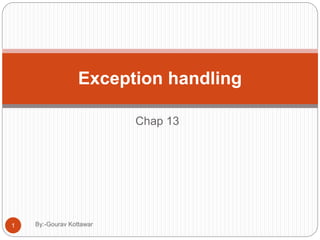
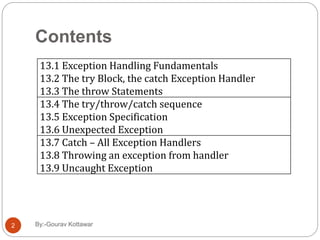
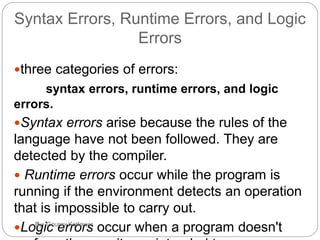
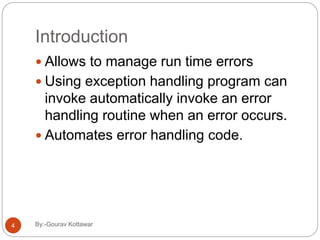
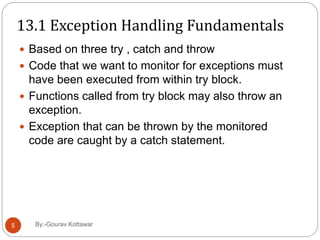
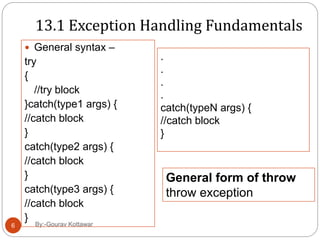
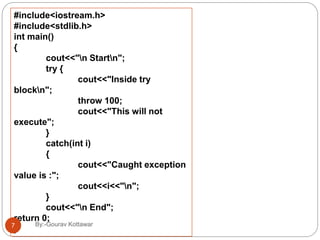
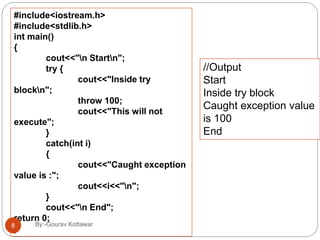
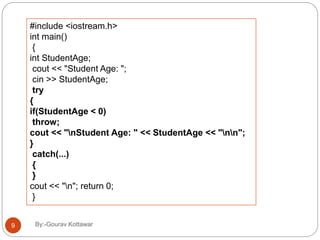
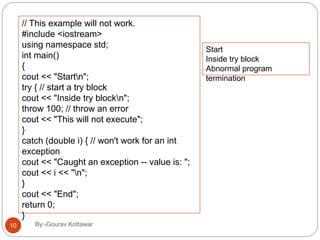
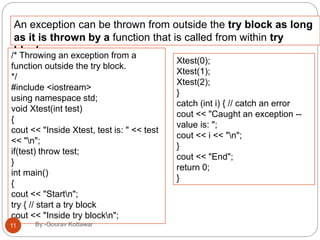
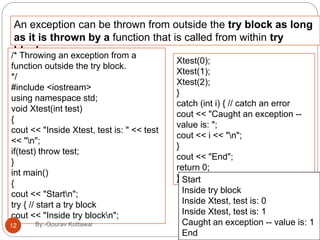
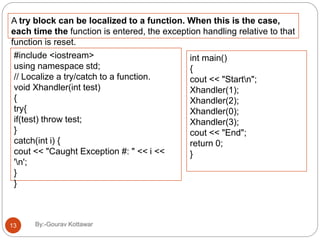
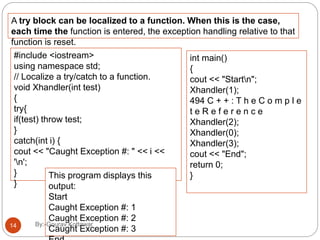
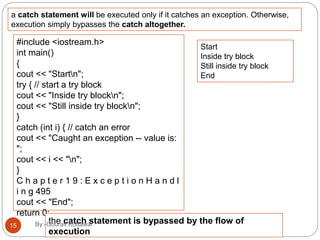
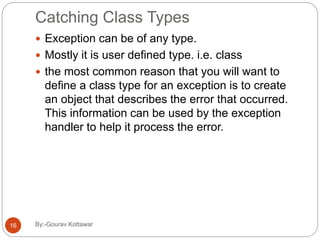
![// Catching class type
exceptions.
#include <iostream.h>
#include <cstring.h>
class MyException {
public:
char str_what[80];
int what;
MyException()
{
*str_what = 0; what = 0;
}
MyException(char *s, int e)
{
strcpy(str_what, s);
what = e;
}
};
int main()
{
int i;
try {
cout << "Enter a positive number:
";
cin >> i;
if(i<0)
throw MyException("Not
Positive", i);
}
catch (MyException e) { // catch
an error
cout << e.str_what << ": ";
cout << e.what << "n";
}
return 0;
}
17 By:-Gourav Kottawar](https://image.slidesharecdn.com/chap13exceptionhandling-160311142019/85/exception-handling-in-cpp-17-320.jpg)
![// Catching class type
exceptions.
#include <iostream.h>
#include <cstring.h>
class MyException {
public:
char str_what[80];
int what;
MyException()
{
*str_what = 0; what = 0;
}
MyException(char *s, int e)
{
strcpy(str_what, s);
what = e;
}
};
int main()
{
int i;
try {
cout << "Enter a positive number:
";
cin >> i;
if(i<0)
throw MyException("Not
Positive", i);
}
catch (MyException e) { // catch
an error
cout << e.str_what << ": ";
cout << e.what << "n";
}
return 0;
}
Enter a positive number: -4
Not Positive: -4
18 By:-Gourav Kottawar](https://image.slidesharecdn.com/chap13exceptionhandling-160311142019/85/exception-handling-in-cpp-18-320.jpg)
